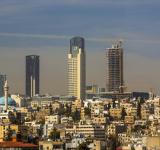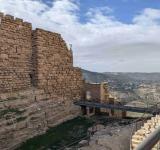Syrian Refugees and Social Cohesion in Jordan
As the Syrian civil war approaches its eighth year,in Jordan — where there are approximately 516, registered Syrians refugees living outside of the camps — observers are increasingly concerned with the relationship between these populations and host communities. Jordan’s February 216 decision to provide limited worker rights to Syrian refugees has drawn widespread attention from refugee policy-makers and civil society advocates,not only for its provision of access to livelihoods but also for the reason that worker integration has the potential to reduce tensions between employed Syrians and their Jordanian counterparts.
While there have been multiple efforts to assess Syrian refugees’ intentions to enter the formal labour market,little has been done to gauge how Jordanian workers perceive the policy. In order to gain a cursory understanding of this,in September 217,the WANA Institute conducted Focus Group Discussions (FGDs) across factories in Amman,Irbid and Mafraq. Participants were Jordanian factory workers — a population that could,in both the present and future — be in direct competition with Syrian workers for factory jobs.


